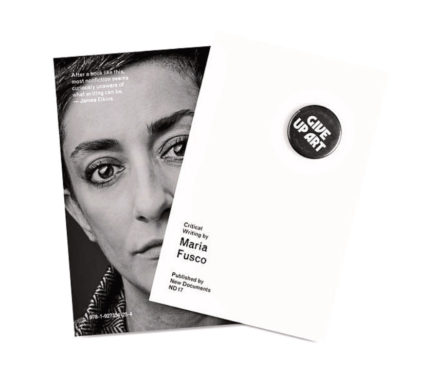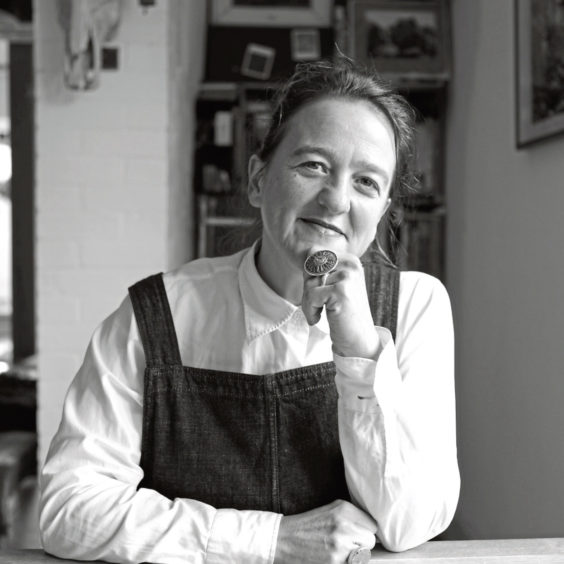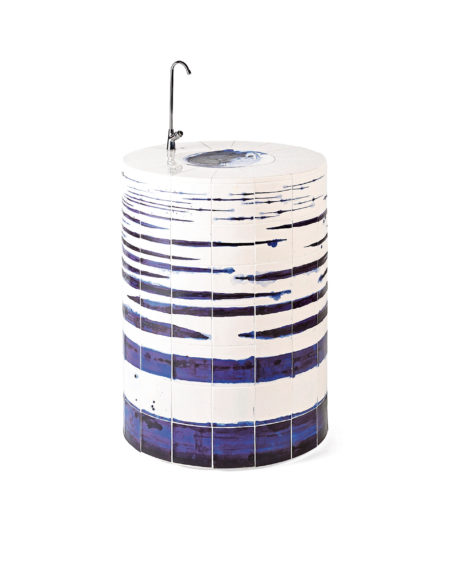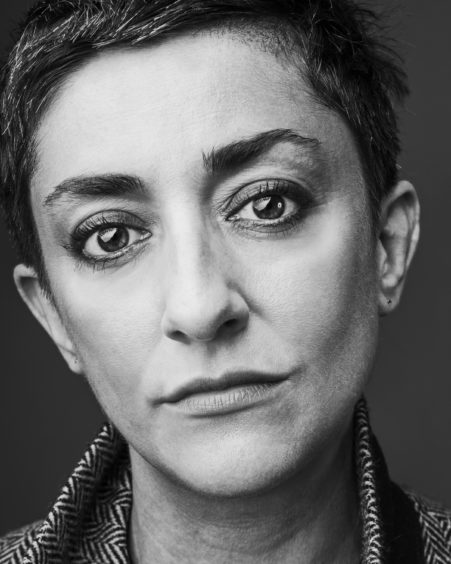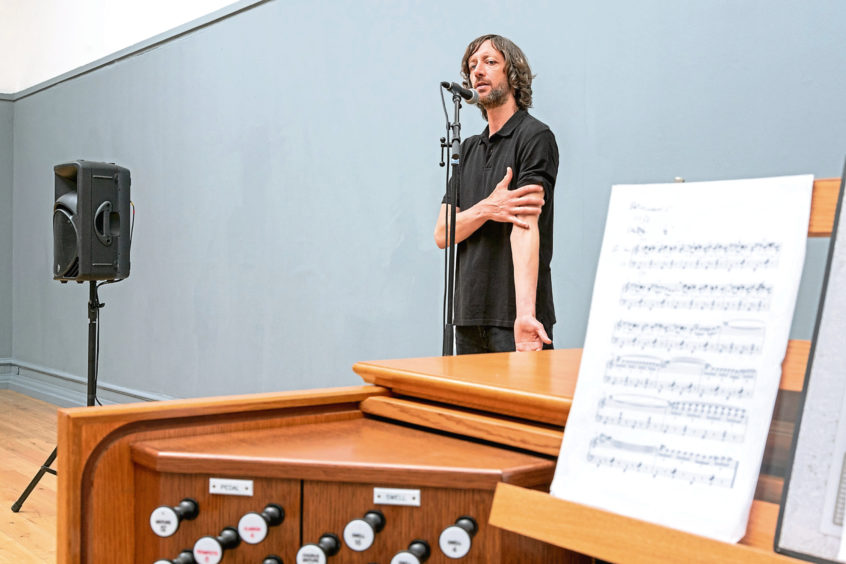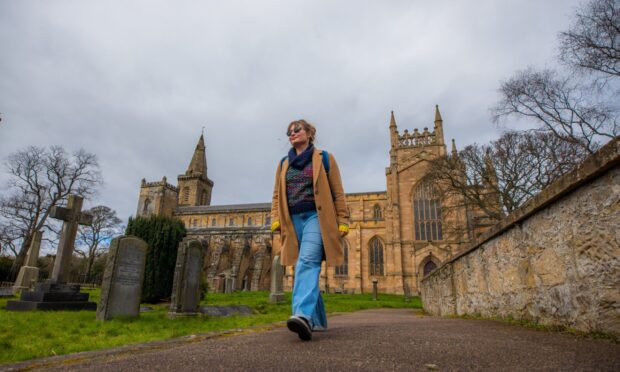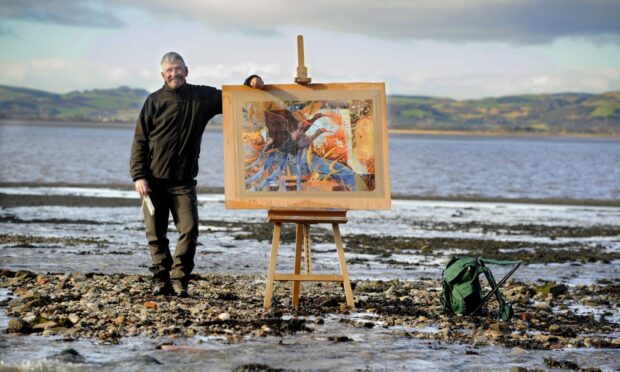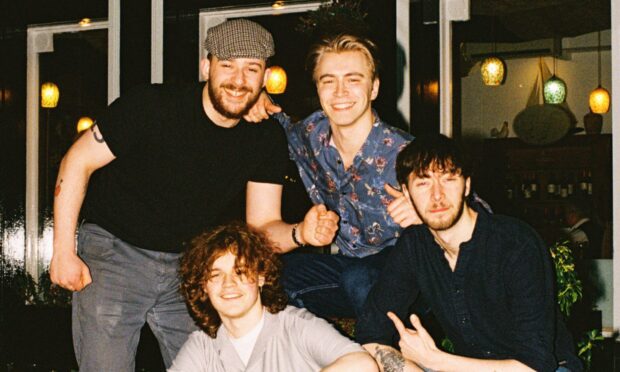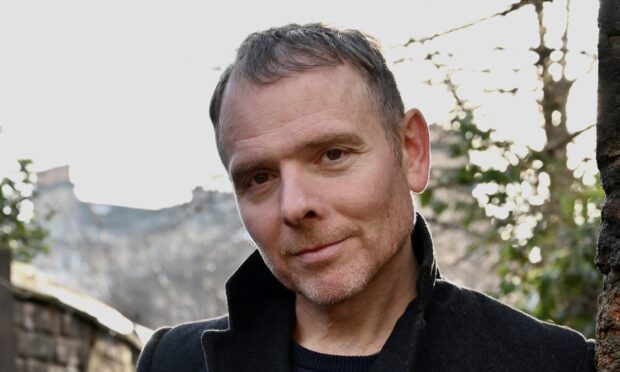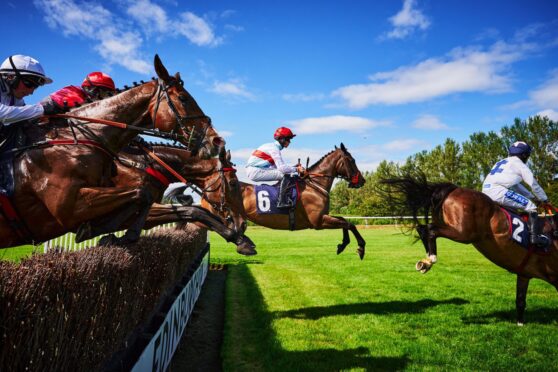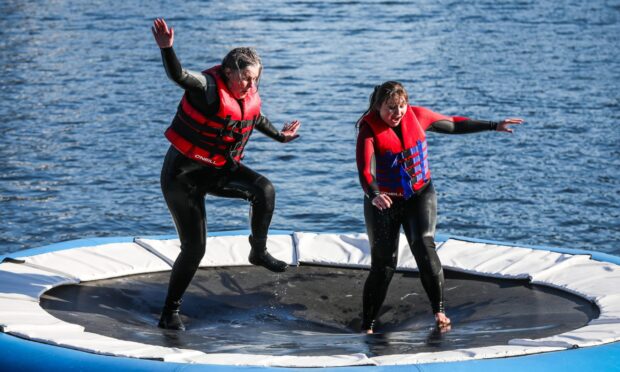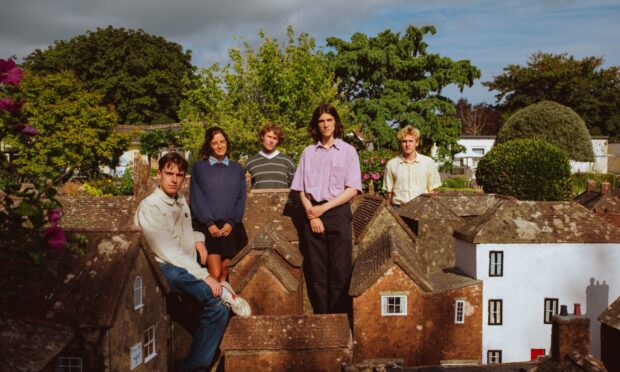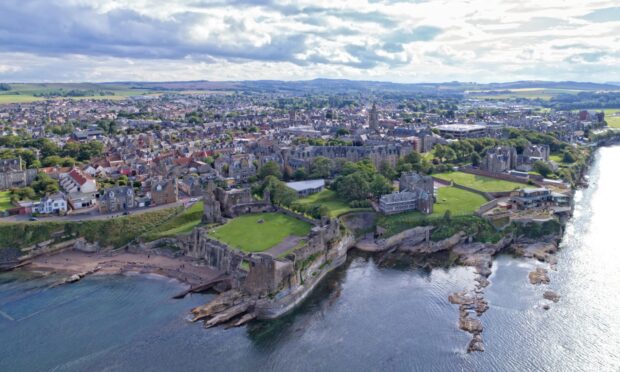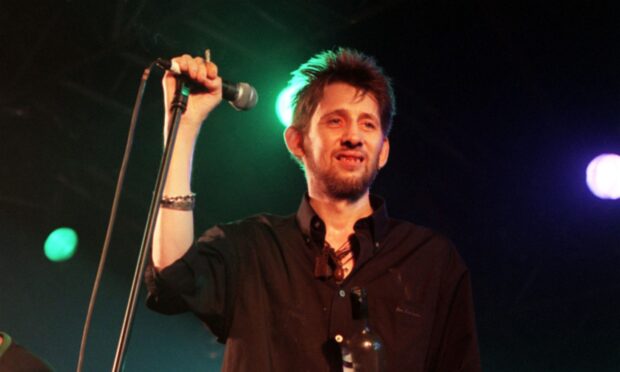Professors Tania Kovats and Maria Fusco both took up positions at Duncan of Jordanstone College of Art and Design in Dundee.
The former specialises in sculpture while the latter is an author who looks at how writing intersects with art.
Tania’s works have been showcased in galleries throughout the UK and abroad, and are included in the Government Art Collection, the National Maritime Museum Greenwich, the Natural History Museum, and the V&A.
Born in Brighton, Tania, 54, is a sculptor whose work focuses on landscapes and the natural world. She studied at Newcastle Polytechnic before completing her MA at the Royal College of Art in London.
She explains: “From the age of 12 or 13 I knew I wanted to be a writer, an actress or an artist. I had a lot of curiosity about how art connects to other bodies of knowledge.
“I’ve always been interested in the relationship art has with landscape and nature, whether over millennia or through quicker processes such as erosion or volcanic action. More recently I’ve thought a lot about the human impact on landscape. The damage began a long time ago, of course, but it’s only more recently the impact we’re having has come to the forefront of public awareness.
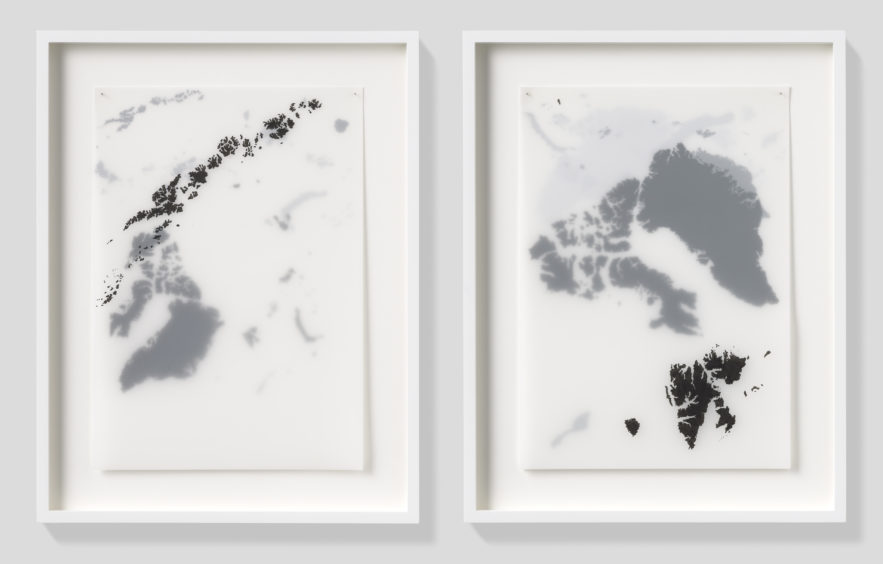
Although she trained as a sculptor, Tania also has an enthusiasm for drawing and encourages all her students to try their hand at it, even if it isn’t what they want to specialise in. “Drawing is one of my passions. I like how drawing is connected to things. It’s not just artists who draw. Engineers, map makers, architects, biologists, medics – so many professions use drawing to express their ideas.”
Two years ago Tania was in New Zealand as part of a residency. “I lived with a Maori community and spent time investigating wetlands. I collected water, which is something I do almost everywhere I go, just like people might collect a pebble to remind them of a beach they like.”
In 2007, Tania, her partner and her eight year old son spent six months in South America following in the footsteps of Charles Darwin. “It was quite an adventure,” she says. “Kindles weren’t around back then so we only had one book each in our backpacks. Mine was Darwin’s the Voyage of the Beagle. Even though it was 150 years’ old it still had an immediacy to it and it was actually a pretty good travel guide.
“We found lots of references to Darwin’s voyage in the places we visited. I don’t often get to make expeditions of that duration so it was a fantastic experience.”
She may have travelled the world during her career but Tania’s love of nature and the outdoors means she’s very happy to be moving to Scotland.
“Whenever I’m anywhere else that’s really beautiful, such as New Zealand, I’m always comparing it to Scotland,” she continues. “Not many countries have the mountains running right down to the sea, or the mountains on the edge of the city. Scotland is somewhere that’s endlessly compelling. The landscape is part of Scotland’s story and its voice. I really love the west coast and I’m looking forward to exploring Dundee and particularly the Tay, from its source to the mouth of the river.”
Maria Fusco works across art writing, fiction, performance and theory, and has worked with organisations such as Artangel, the BBC, and the Royal Opera House.
The 48 year old was born in Belfast and now lives in Glasgow. Before joining Dundee University she was Professor of Fine Art at Northumbria University, Chancellor’s Fellow at the University of Edinburgh, and Director of Art Writing at Goldsmiths. Her most recent role has been as Visiting Professor at the University of Art and Design Offenbach am Main in Germany.
She agrees 2020 has been an unusual year to start a new job and move to a new city. “It’s a bit of a strange time,” she says. “I already knew quite a few people in Dundee, from the DCA and the Cooper Gallery, but there are so many new colleagues I need to get to know. Normally that would be done over a lunchtime coffee or an after-work glass of wine but for now it’s being done virtually. They’ve all been incredibly welcoming though.”
Described by broadcaster Richard Skinner as “one on the wittiest, most adroit and vibrant writers in the UK,” Maria writes a mixture of fiction, critical and theoretical texts.
She studied fine art in Sheffield before living in London for 20 years where she worked in bookshops, as a writer, and as a publisher.
She sees writing as part of being an artist. “If you look at it, most artists were writers,” she says. “Salvador Dali wrote a novel. Andy Warhol wrote a novel. Writing permeates so much of art. Film makers are writers – they have to produce the screenplay, the drama.”
Maria was selected from more than 1,000 entrants to produce an ambitious piece of work that was broadcast to more than three million Radio 4 listeners. Master Rock was performed and recorded inside Ben Cruachan, a mountain in Argyll and Bute.
“It’s an old power station in a cave that was carved out of the mountain by Irish navvies,” Maria continues. “It’s a very dramatic space. The production was performed by three people in front of a limited audience – the power station doesn’t allow too many people in. The walls are bare granite and they form part of the performance. Essentially we used the granite as an instrument.”
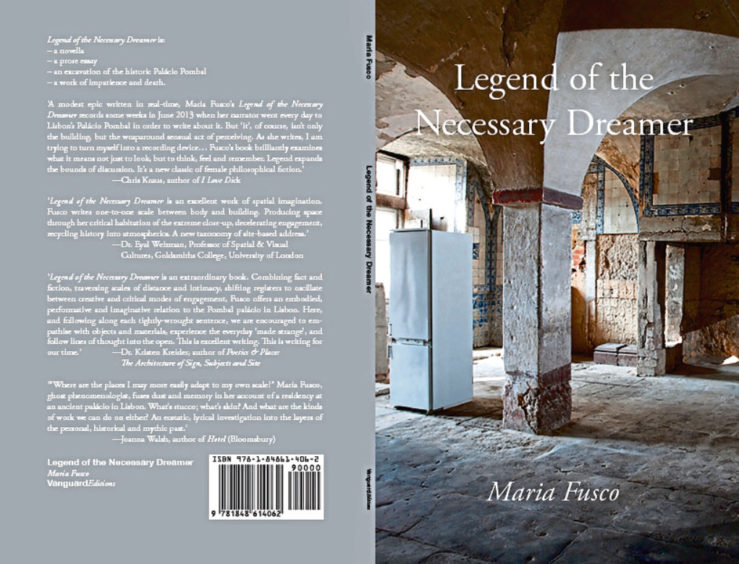
One of Maria’s works that looks especially prescient today was commissioned by the National Theatre of Wales to celebrate the 70th anniversary of the NHS in 2018. Eczema is an experimental piece of work exploring a skin disease affecting an estimated 15 million people in the UK, including Maria herself.
“I wanted to pick something that is persistent, chronic and has a certain lack of dignity about it. Eczema is something so many people live with. We performed it at the BBC Symphony Hall in Cardiff, using a full sized organ – which of course is a pun, as the skin is the largest organ in the body.
“I wasn’t aware of it at the time of course but given that we’ve all been out clapping on Thursday evenings during the Covid crisis that piece feels more relevant now than ever.”
